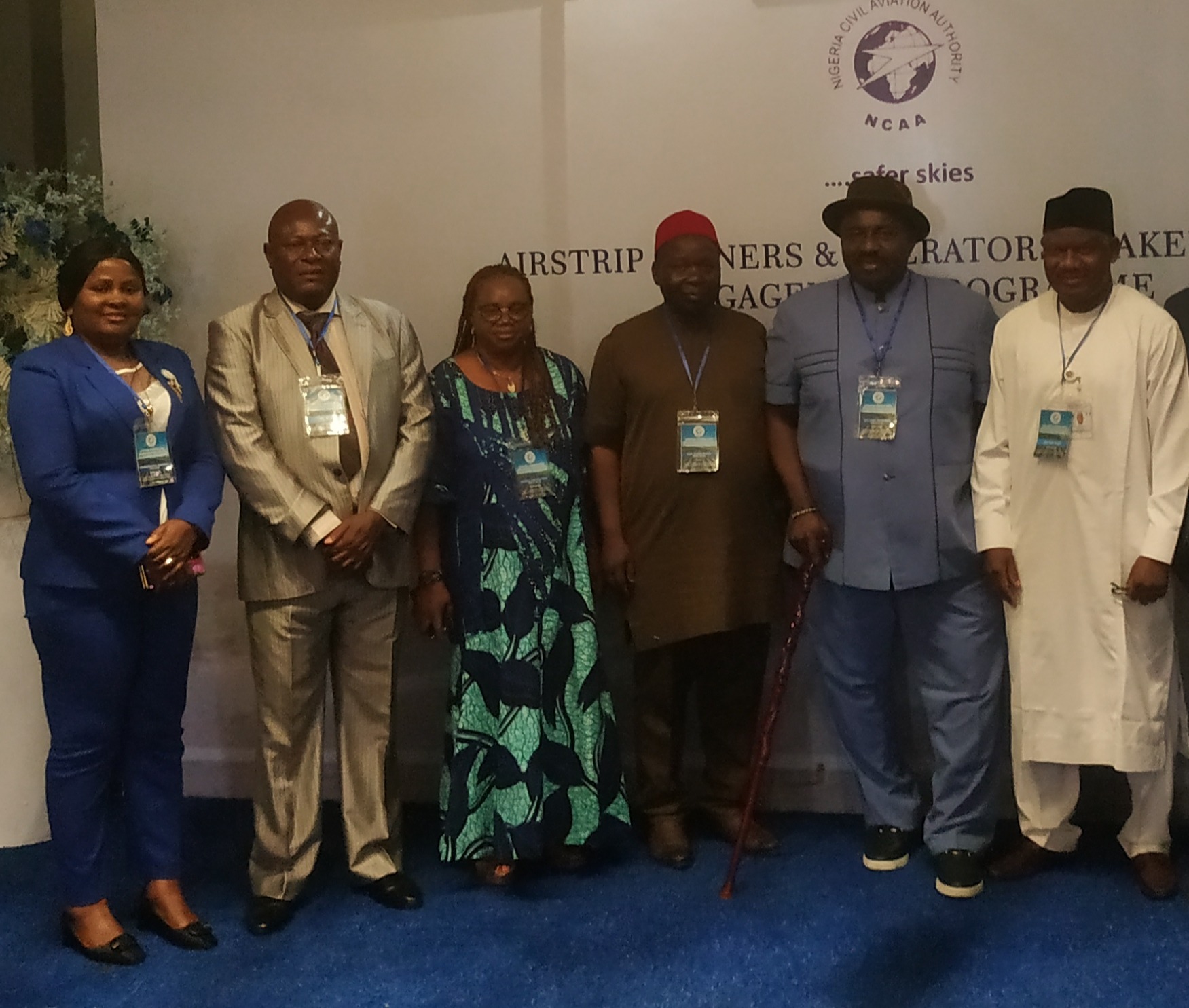NCAA Charts New Course for Airstrip Operations, Emphasises Stringent Safety Measures

The Nigerian Civil Aviation Authority (NCAA) on Monday, 28th April 2025, hosted the maiden Stakeholders’ Engagement with Airstrip Owners and Operators in Lagos, marking a historic watershed moment in the industry’s evolution.
Welcoming an esteemed gathering at the event held in Lagos, the Director-General of Civil Aviation, Captain Chris Najomo, expressed profound pride and humility in convening the unprecedented forum.
“Although aviation in Nigeria is about 100 years in the making, today’s stakeholder engagement, specifically on airstrip development, is interestingly the first of its kind. I must add that the timing is impeccable,” the Najomo noted, underlining the urgent need to strengthen the regulatory framework around airstrip operations.
Tracing the historical trajectory of aviation, he observed that initial focus was predominantly on machines and manpower, with little attention to the operating environment.
However, global and regional aviation bodies have since recognised that poorly regulated operating environments pose a serious threat to aviation safety and sustainability.
“It is based on this premise that we decided to focus on all types of aerodromes in a bid to expand and intensify regulatory oversight over them in the interest of safety,” he explained.
The Director of Aerodrome and Airspace Standards (DAAS), Engr. Balang Godwin further amplified this vision, expressing honour at hosting what he described as a historic engagement designed to reposition the airstrip landscape.
Balang emphasised that while airstrips are categorised under aerodromes, there is a critical need for a regulatory framework specifically tailored to their unique characteristics, to stimulate growth and enhance safety.
Highlighting the previously unveiled agenda of the Minister of Aviation and Aerospace Development, Festus Keyamo, for the aviation industry, Engr. Balang recalled that the Director-General of Civil Aviation had signed a performance bond aimed at delivering strategic outcomes, including the directive to organise this engagement.
This initiative, he noted, was fully aligned with the NCAA’s statutory responsibility under Section 71 (3) and (4)(a) of the Civil Aviation Act 2022, to certify and grant permits for aerodrome operations and establish minimum safety standards.
The Director of DAAS further revealed that Nigeria boasts approximately 92 airstrips, comprising operational, non-operational, rehabilitating, and newly constructed facilities.
Alarmingly, only a handful possess valid operational permits, a situation he described as untenable given the safety implications.
According to Balang, of these 92 airstrips, 68 are owned and managed by the Federal Government through the Ministry of Aviation and Aerospace Development, while 24 are privately owned.
This distribution, he stressed, highlights the critical need for strengthened collaboration between the NCAA, government agencies, and private sector stakeholders.
He disclosed that two of Nigeria’s international airports – Murtala Muhammed International Airport, Lagos and the Nnamdi Azikiwe International Airport, Abuja – were successfully recertified in late 2024, with plans underway to certify others.
Furthermore, effective 1st January 2026, local airports operated by the Federal Airports Authority of Nigeria (FAAN) without valid permits would face regulatory sanctions.
However, the DAAS Director was quick to clarify that this move was not intended as a threat but rather a firm step towards entrenching safety and operational excellence.
The engagement set forth ambitious objectives, including:
Enhancing communication between the NCAA and airstrip operators/owners.
Clarifying regulatory requirements for construction, operations, and safety standards.
Identifying and addressing challenges faced by airstrip operators.
Exploring collaborative opportunities for airstrip development and integration into Nigeria’s aviation ecosystem.
Promoting the adoption of global best practices in airstrip management.
Acknowledging the dynamism of modern aviation, DAAS stressed the need for adaptable regulatory strategies that reflect contemporary realities, particularly in the areas of aviation security, operational efficiency, and the maximisation of airstrips’ economic potential.
In addressing these challenges, the NCAA announced plans to introduce regulations tailored specifically for airstrips, balancing the International Civil Aviation Organisation’s (ICAO) standards under Annex 14 Volume I with the Federal Government’s ease-of-doing-business agenda.
This initiative aims to drive the growth of general aviation while upholding robust safety protocols — a strategic alignment with the Honourable Minister’s five-point agenda for the aviation sector.
Recognising that a single day’s discussions could not exhaust the complexities involved, DAAS invited ongoing input from stakeholders via written submissions, phone conversations, and social media platforms, stressing that modern regulatory approaches are increasingly collaborative rather than punitive.
In his remarks, the DGCA commended the NCAA’s Directorate of Aerodrome and Airspace Standards and its team for delivering a well-organised engagement, with a view to achieving meaningful reforms that will elevate Nigeria’s airstrip operations to global standards.
The historic engagement is poised to usher in a new era of regulatory excellence, safety compliance, and strategic development across Nigeria’s airstrip operations, laying a strong foundation for the sector’s sustainable future.







